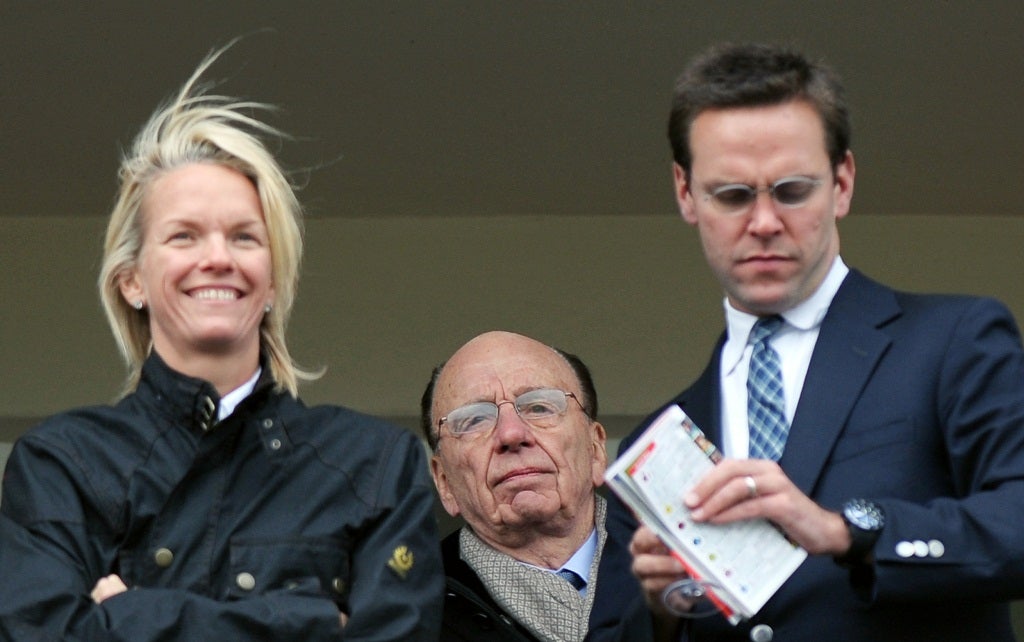Diary: A Murdoch whose beliefs could help save the BBC
There is one candidate for Director General who would really ruffle Murdoch feathers


The search for a new BBC Director General will go far and wide. Ideally, the candidate should be someone who understands television, who has journalism in the blood, and high level managerial experience. A woman DG would be a breakthrough. And obviously we do not want someone who shares James Murdoch’s prejudice that profit is the only guarantor of a broadcaster’s independence.
We want someone like the woman who warned an audience at the Edinburgh Festival three months ago that “Profit without purpose is a recipe for disaster… It is increasingly apparent that the absence of purpose – or of a moral language – within government, media or business, could become one of the most dangerous own goals for capitalism and for freedom.” And who said: “Let me put it on the record that I am a current supporter of the BBC’s universal license fee.”
Yes, the ideal DG: step forward Elisabeth Murdoch, above.
Peerless pursuit for Saddam’s WMDs
Though the conflict in Syria is a gruesome humanitarian disaster, not every suggestion for resolving need be taken too seriously. Nothing that Lord James of Blackheath, an eccentric Tory peer and former boardroom troubleshooter, need be taken all that seriously either.
Having read that Syria claims to hold weapons of mass destruction that some think they may have got from Saddam Hussein, Lord James wanted to know if the UN resolution banning Saddam’s weapons applied to wherever the weapons happened to be. His thinking seemed to be that having fought one war in a failed attempt to find Saddam’s elusive WMDs, the West could fight another, in Syria, to see if they will turn up there.
Baroness Warsi, replying for the Government, said no, the UN resolution on Iraq’s WMDs did not apply anywhere but Iraq. Lord James is 74.
Modern slant on an Everest legend
It is nearly 90 years since the English explorer George Mallory disappeared during an attempt to climb Mount Everest, and we may never know whether he reached the peak. But a modern-day Canadian explorer, Wade Davis, has written a book about the climb, for which he won the £20,000 Samuel Johnson prize for non-fiction last night. According to the Higher Education minister David Willetts, who chaired the judges’ panel, it is “an exciting story of human endeavour imbued with deep historical significance”.
Ding dong over Chuck’s ding-a-ling
Our sister paper, The Independent on Sunday, has asked 60 prominent individuals to mark 60 years of the pop charts by naming their favourite tracks. So far, no one has selected “My Ding-a-Ling”, by Chuck Berry, which was racing to the top of the charts 40 years ago this month. This is just as well, because any mention of that song is liable to cause Mary Whitehouse, the feisty old campaigner for cleaner TV, to rise from her grave.
Letters newly released from the archives reveal the full extent of that lady’s fury at Chuck Berry’s appearance on Top of the Pops. These were in the days when the BBC needed only to worry about what appeared on screen; that Jimmy Savile and Gary Glitter were abusing young girls backstage was not a problem that crossed the desks of senior managers then. Mrs Whitehouse’s beef concerned the interpretation some school boys were putting on the song’s lyrics, such as: “You must be playing with your own ding-a-ling.”
“One teacher told us of how she found a class of small boys with their trousers undone, singing the song and giving it the indecent interpretation which, in spite of all the hullaballoo, is so obvious,” an irate Mrs Whitehouse informed the Director General, Charles Curran, in a letter dated 1 January 1973.
He had already considered her complaint, and noted that for every person who wrote in supporting her, twice as many had written saying that Mrs Whitehouse was talking nonsense. He concluded: “‘My Ding-a-Ling’ begins with such a clear account of the contraption in question including bells, that although the possibility of a double entendre was recognised, we decided that it could be broadcast.” No heads rolled. No one even “stood aside”. Happy days for the BBC.
Join our commenting forum
Join thought-provoking conversations, follow other Independent readers and see their replies
Comments